A
number of years ago I gave a lecture on Swahili coast history to a
group of educators and students on Chicago’s South Side. During the
Q&A period one older gentleman asked me why I didn’t say more about
Muslim-led slavery of Africans in the Indian Ocean. I responded somewhat
inadequately that slavery in the Indian Ocean wasn’t a religious issue
but an economic one. The gentleman wasn’t satisfied, explaining that he
was disappointed in Louis Farrakhan’s silence on the issue and
testifying to the continuing presence of slavery in African Muslim
countries like Mauritania to this day, explaining that slavery was
justified by sharia.
The
man in question was not a conservative Christian, nor part of
Islamophobia Inc. but rather part of a generation of Afrocentric black
nationalists in the intellectual tradition of John Henrik Clarke.
He was condemning the practice of slavery globally from his commitment
to Afrocentrism and part of the broader tradition of black nationalist
liberation politics in in the United States. He wondered why Muslims
were seemingly behind in that fight or ambivalent to the practice of
enslavement. In spite of my historical understanding of slavery and the
slave trade as practices that many non-Muslim African as well as Muslim
African societies often willingly engaged in, his words forced me to
reckon more seriously with how Islamic law treats the abolition of
slavery. I am especially interested in this issue as someone trained as a
historian of East Africa, where the abolitionist movement predated and
then became part of the first wave of European colonization of Africa,
post 1885. My position is that the Islamic tradition has already
developed an abolitionist ethos and a strong commitment to liberation,
out of a set of social and political struggles, including resistance to
European colonialism, that took place in the historical encounters
between Islam, Africa and the West in the eighteenth and nineteenth
centuries.
Afrocentrists
often point to the Quran and Hadith’s sanction of slavery. It is true
that Islam accepted slavery as a part of Arabian society, but there is
no evidence the tradition actively encouraged the taking of slaves. If
one wishes to speak of a particular ‘trajectory’ of Islamic
interpretation based on the Qur'an and Sunnah, it is a trajectory of
manumission, not abolition.1
The Prophet Muhammad assumed that if manumission continued to regularly
occur, then slavery could continue to exist without being a
trans-generational status, and would eventually die out.
The
Prophet Muhammad challenged the practice of slavery in Arabian society
by compelling the powerful to care for and protect the less powerful.2
If masters and slaves could share some basic moral assumptions,
powerful masters would feel a social obligation to protect and show
kindness to their slaves. In Islam this is exemplified by a hadith
enjoining the believer to treat their slaves as they would treat their
own children.3 Slaves in Islam would (ideally) function more like kin and less like a separate caste of sub-humans.4
Their offspring, again ideally, would be free to assume their place
alongside the freeborn. None of these reforms radically challenged the
‘natural’ reality of slavery itself.5
Why
didn’t Muslims abolish slavery earlier? This is a valid question and it
is worth it for Muslims to reflect very hard and critically about,
especially if one is seriously committed to practicing the tradition.
But when Afrocentrists ask Muslims why Islam did not abolish slavery,
there is a hidden assumption that non-Muslim African societies had
already abolished the practice. But in fact many powerful non-Muslim
African societies depended on slavery for their wealth and resented
European imposed abolition for that reason, for instance, the Asante
empire of the eighteenth and nineteenth centuries.
Abolition
as an ethical dilemma only occurs because we inhabit a very different
time from the early Muslims, as well as most pre-colonial African
societies. We often forget that for Jesus, Muhammad and other moral
teachers of the past, the master-slave relationship was both a fact of
life and a metaphor of our relationship with the Divine.6
The more relevant question then, is not ‘why didn’t Muslims abolish
slavery?’, but ‘what makes our time different from the time of the early
Muslims?’
One
possible answer to that question is that we now live in a global
society where we take the freedom of an individual as an irrevocable
human right. Although this ideal is often traced to Western origins, it
is important to note that it has other global, non-Western genealogies
that are both Muslim and African. Haitian
revolutionaries, among whom were African Muslims, were first among
those insisting on this freedom in their struggle to end slavery in the
late 1700s. At around the same time, the West African Muslim ruler Abdul
Kader Kane sought to abolish the slave trade in his realm, in order to
protect his subjects from the French-controlled slave trade at Saint
Louis.7
Formerly
enslaved Muslims also helped to reshape community perceptions of
slavery. In East Africa especially, the abolition of slavery coincided
with the new popularity of Sufi brotherhoods as tools for the mass
propagation of Islam. Sufism became the language by which formerly
servile people appropriated the message of Islam to undermine the ijma
around the social status of slaves and ex-slaves. In Lamu, Kenya, the
'Alawi shaykh Habib Saleh angered the town's former slaveholding elite
by teaching ex-slaves. In Bagamoyo,
Tanzania, an ex-slave from the Congo rose to become a Sufi shaykh and
one of the most knowledgeable scholars of the region; he faced strong
opposition from former slave owners.8
The first five decades of the twentieth century in Africa revealed
Muslims reshaping the consensus on slavery. This process of reshaping ijma
was not only an elite scholarly one; it included formerly enslaved
Muslims, who contested their rights within the idioms of Islam, molding
Islamic cultural repertoires to critique the exclusionary social
practices of Muslim elites.
Traditions,
Islam included, are not closed caskets but open conversations and
debates often characterized by shifting notions of what is permissible.
Slavery is one such shifting notion. There is nothing in the Islamic
tradition mandating slavery. Thus, the overwhelming majority of Muslims
today find slavery distasteful and have no desire to practice it. They
have internalized a desire not to own people that is very modern. This
is a direct result of the most oppressed and vulnerable elements of
human global society forcing the world to accept a more robust and
inclusive concept of individual freedom. Concepts of abolition and
freedom are the product of centuries of struggle by enslaved Africans
and others to radicalize and decolonize the values of the societies they
found themselves forcibly dragged into. They constitute a valuable tool
that a range of activists today, from the Rabaa Square protests in
Egypt to the garment worker strikes in Bangladesh to Black Lives Matter
activists in the US, use to launch more radical critiques of global
inequality, exploitation, and other conditions analogous to slavery.
The
Prophet Muhammad’s attempt to protect the enslaved and to grant them
protections and rights, without abolishing slavery, was not a moral
failing, but the advancement to the limits of what it was possible to
envision within his era. If we do not acknowledge this, we will continue
to reproduce two stale arguments of past Muslim apologists: that
abolition is a Western concept that fetishizes consent and freedom, or
that the Prophet Muhammad was an abolitionist. Neither of these are
tenable positions, and there are severe moral costs to holding them,
that compromise the moral compass of Muslims and leave serious and
inquisitive outsiders with a suspicion that Muslims are more interested
in theological apologetics than an honest reckoning with history. For
instance, it is but a short step from the saying abolition is a Western
concept to making the argument, like the late Islamist philosopher Abu
Ala Mawdudi, that we need to retain slavery as a mark of Muslim moral
independence from the West.9 And there is simply no evidence from our tradition that the Prophet Muhammad ever contemplated abolishing slavery.
My
argument is distinct from both of these extremes. I have argued that
Western notions of abolitionist freedom have already fused with Islamic
values, and that it is dangerous to try to extract one from the other.
There are a number of positive benefits from embracing this position.
For one thing, it provides Muslims with a powerful language not only to
challenge slavery, but many other forms of similar domination and
exploitation that go by different names. It seems to me that Muslims who are using this fusion of moral horizons
to critique both Muslim and Western complacency with regards to forms
of oppression analogous to slavery are engaged in an urgently necessary
and positive reinvigoration of the Islamic tradition.
NOTES:
1 Trajectory hermeneutics originated with Christian theologian William Webb. For more on their use, see his 2001 book, Slaves, Women, and Homosexuals: Exploring the Hermeneutics of Cultural Analysis.
2 Jonathan Glassman. “The Bondsman’s New Clothes: The Contradictory Consciousness of Slave Resistance on the Swahili Coast” Journal of African History 32(2): 1991, 277-312.
3 Ṣaḥīḥ al-Bukhārī º30; Ṣaḥīḥ Muslim º1661
4 The walāʾ
system then, whatever its faults, was a social compact between master
and slave, and thus often a tool of integration of the latter. See
Ulrike Mitter. “Unconditional Manumission of Slaves in Early Islamic
Law: A Hadith Analysis.” In The Formation of Islamic Law (ed. Wael Hallaq). New York: Routledge, 2008.
5 Unlike
the status of ex-slaves even many postbellum Western societies, the
formerly enslaved in the Islamic world could raise their status
considerably. But that did not erase an existing hierarchy placing the
enslaved at or near the bottom of society.
6 Luke
12:43-48; Qur'ān (Sūra az-Zumar) 39:36. The Apostle Paul’s advice to
the runaway slave Onesimus in the Book of Philemon is filled with
admonishments about a new community of belief between slaves and masters
that does not upend the social hierarchy but nevertheless creates a
sense of moral obligation between the two.
7 For
the Haitian revolutionaries and their creation (not merely co-optation
of) Enlightenment values, see Laurent Dubois, “Enslaved Enlightenment:
Rethinking the Intellectual History of the French Atlantic” Social History 31(1): Feb 2006, 1-14. For the abolitionists, see Adam Hochschild. Bury The Chains: Prophets and Rebels in the Fight to Free An Empire’s Slaves. London: Mariner Books, 2006. For Abdul Kader Kane and the abolition of slavery in Futa Toro, see Rudolph Ware, The Walking Quran, Chapter 3.
8 For Habib Saleh, see Patricia Romero. "'Where Have All the Slaves Gone?' Emancipation and Post - Emancipation in Lamu, Kenya." The Journal of African History 27 (3): 1986, 497-512. For Shaykh Ramiya, see August Nimtz Jr. Islam and Politics in East Africa. The Sufi Order in Tanzania. Minneapolis: University of Minnesota Press, 1980, 45.
9 Abu Ala Mawdudi was unabashed about this stance. See W.G. Clarence-Smith, Islam and the Abolition of Slavery, 188.

Nathaniel
Mathews is currently an Assistant Professor in the Department of
Africana Studies at SUNY-Binghamton. He received a B.A. in History from
Howard University, an M.A. in Global, International and Comparative
History from Georgetown University in 2009, and a Ph.D. in African
History from Northwestern University in 2016, focusing on family
networks and the Swahili-speaking diaspora in the Indian Ocean.
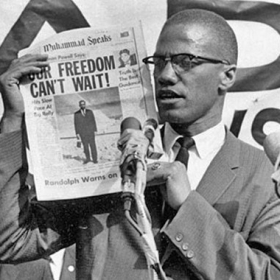
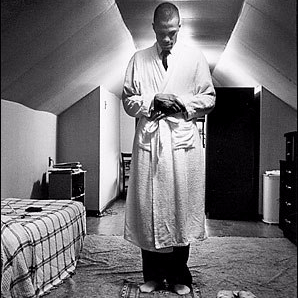
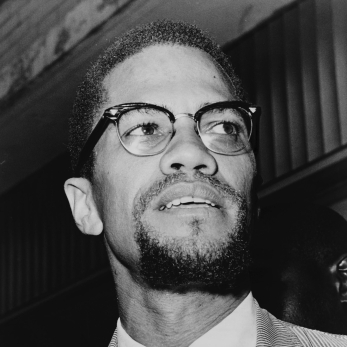
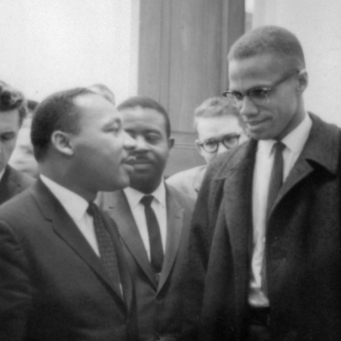
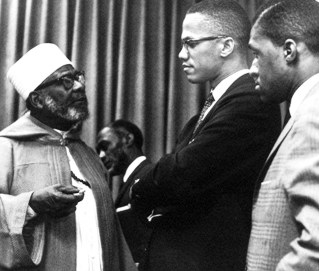 organization
will spend an entire career being a good “moderate Muslim” acquiescing
to the white supremacist notion of collective guilt after the latest
incident puts Muslims in a bad spotlight. This comes at the expense of
having ministries actively addressing the spiritual needs of black folks
in neighborhoods hardest hit by white supremacy and who through internal colonialism
have been ostracized from mainstream America. The strict separation of
religion from the lived material realities of Black people is the trick
of secularism. Both the Negro imam and Muslim immigrant institutions
ultimately get subsumed by a theology that presents no credible threat
to white supremacy.
organization
will spend an entire career being a good “moderate Muslim” acquiescing
to the white supremacist notion of collective guilt after the latest
incident puts Muslims in a bad spotlight. This comes at the expense of
having ministries actively addressing the spiritual needs of black folks
in neighborhoods hardest hit by white supremacy and who through internal colonialism
have been ostracized from mainstream America. The strict separation of
religion from the lived material realities of Black people is the trick
of secularism. Both the Negro imam and Muslim immigrant institutions
ultimately get subsumed by a theology that presents no credible threat
to white supremacy.  Hakeem Muhammad is a Black Muslim Public Intellectual, Public Interest Law Fellow at Northeastern Law School, and Educator at Muslim Empowerment Institute
(MEI). Muhammad’s scholarship is dedicated to Islamic revival in the
black community. He believes that Islam must be restored to having the
transformative effect in once had in mitigating the social ills of
Black America. Muhammad has previously worked in the African-American
Male Initiative working to increase the college retention rates of
Black Male students. He has also taught political philosophy for
Harvard Debate Council and Cal Speech and Debate Camp at U. C Berkeley.
Muhammad is also the author of the forthcoming book, “The Significance of the Honorable Minister Louis Farrakhan to the Entire Muslim Ummah.”
Hakeem Muhammad is a Black Muslim Public Intellectual, Public Interest Law Fellow at Northeastern Law School, and Educator at Muslim Empowerment Institute
(MEI). Muhammad’s scholarship is dedicated to Islamic revival in the
black community. He believes that Islam must be restored to having the
transformative effect in once had in mitigating the social ills of
Black America. Muhammad has previously worked in the African-American
Male Initiative working to increase the college retention rates of
Black Male students. He has also taught political philosophy for
Harvard Debate Council and Cal Speech and Debate Camp at U. C Berkeley.
Muhammad is also the author of the forthcoming book, “The Significance of the Honorable Minister Louis Farrakhan to the Entire Muslim Ummah.”